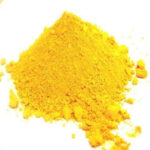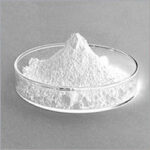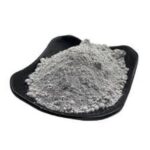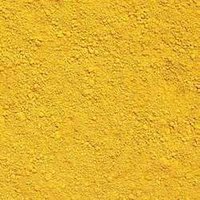Porus Silica
We are the stalwarts in the domain of manufacturing, supplying, wholesaling, and exporting Porus Silica These flavor grade chemicals are processed using pure and accurate ingredients that are procured from reliable and trusted vendors of the market. Our range is available in the market at leading prices in packs of different quantities.
Porous Silica, also known as silica aerogel or porous silicon dioxide, has several potential uses and applications in agriculture due to its unique properties, including its high surface area, porosity, and ability to absorb and release water and nutrients.
Here are some of the uses and applications of porous silica in agriculture:
Soil Amendment: Porous silica can be added to soil to improve its physical properties. It enhances soil structure, water retention, and aeration, which can lead to better root growth and nutrient uptake by plants. It also helps in preventing soil compaction.
Water Retention: Porous silica can absorb and retain significant amounts of water, making it a useful component in soil mixes or hydroponic systems. It can release water gradually to the roots, reducing the need for frequent irrigation and conserving water resources.
Nutrient Delivery: The high surface area of porous silica allows it to adsorb and release nutrients slowly over time. This can be particularly beneficial in providing a steady supply of essential nutrients to plants, preventing nutrient leaching, and reducing the need for frequent fertilization.
Pesticide and Herbicide Carrier: Porous silica can be used as a carrier for pesticides and herbicides. Loading these chemicals onto porous silica can help in their controlled release, reducing the risk of over-application and minimizing environmental pollution.
Seed Coating: Treating seeds with porous silica can improve seed germination and protect seeds from environmental stressors. The porous structure can hold water around the seed, promoting germination, and ensuring a consistent water supply during the early growth stages.
Root Growth Promotion: The improved soil aeration and water retention provided by porous silica can lead to enhanced root growth and overall plant health. This is particularly useful in arid or degraded soils.
Disease and Pest Control: Porous silica can be used in conjunction with beneficial microorganisms or biopesticides. Its porous structure can provide a suitable environment for these organisms, enhancing their efficacy in controlling diseases and pests.
Environmental Remediation: In addition to its agricultural applications, porous silica can also be used in soil remediation projects. It can help in the removal of contaminants from soil and water due to its high adsorption capacity.
Fertilizer Efficiency: When incorporated into fertilizer formulations, porous silica can improve the efficiency of nutrient delivery to plants. This can reduce fertilizer runoff and nutrient loss, which is beneficial for both crop yield and environmental protection.
Plant Growth Substrate: Porous silica can be used as a substrate in soilless cultivation systems, such as hydroponics and aeroponics. Its porous structure provides support for plants and allows for efficient nutrient and water management.
Crop Stress Mitigation: Porous silica can help plants tolerate environmental stressors such as drought and salinity. Its ability to retain water and nutrients can mitigate the impact of adverse conditions on crop growth.
Livestock Feed Additive: Silica nanoparticles can be used as feed additives for livestock to improve digestion and nutrient absorption. It can also reduce the effects of mycotoxins in animal feed.
Before using porous silica in agricultural applications, it’s essential to conduct proper research and testing to determine the most suitable form and application method for specific crops and conditions. Additionally, considering the environmental impact and long-term effects of using porous silica is crucial for sustainable agriculture practices.








